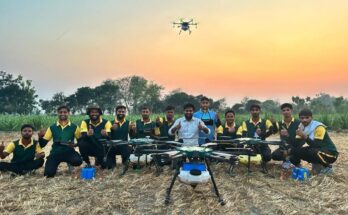New age consumers want to know all about the products they are consuming. In these times of an unsure and unprotected environment, consumers are questioning the authenticity of products more often. This is understandable as there are a lot of counterfeiting activities happening around us despite the relentless efforts of brand manufacturers and marketers to serve customers with authentic products.
Consumers often complain that they receive fake products with the label of the brand, or the quality of the food item is not up to the mark as promised by the brand. This is due to the inefficient supply chain which spoils the customer journey which starts long before the product is delivered to them. Such experiences crush customer experience, creates doubts about the manufacturer in their minds besides tarnishing the brand’s image.
Consumers are increasingly demanding improved traceability and are keen to know about the food they consume – like storage of their favourite food besides sourcing details. Manufacturers too have realised the role of robust traceability systems in reducing cost and increasing profit thereby enabling them to stay ahead of the competition.
With the supply chain getting increasingly complex, manufacturers and retailers of food and beverage need to bring things up to speed to make sure they do not lag behind their competitors. This is also necessary as an inefficient supply chain without any transparency and traceability poses a significant risk to human lives and the food and beverages industry cannot bear to be just ‘okay’ especially with huge competition around them.
Why is food safety important?
According to reports, more than 30 percent of people face health problems because of counterfeit food and beverage items. This can be attributed to counterfeit products and inefficient supply chains failing to ensure transparency and traceability putting the health of the consumers at risk and threatening the reputation of the global food industry.
This can have a devastating consequence on customer loyalty, company revenue, and the reputation of the brand thereby negatively impacting the income of the food or beverage grower, producer, manufacturer, processor, and retailer.
Robust supply chain management enabled with expert advice, serialisation, and aggregation, and disruptive technologies such as blockchain, artificial intelligence is the way to ensure end-to-end traceability in the food and beverage supply chain. It can help manage recalls faster and efficiently, prevent major outbreaks besides enabling quick identification of the source of contamination.
This is not all. It can also help in gaining real-time, actionable insights to take immediate corrective measures. Also, the supply chain management team can also help mitigate recall costs and the impact by knowing the real-time location, status, and flow of products in the supply chain from raw material to end supply.
Way forward
Food safety problems have been rare, and minimum, but now they are increasing as counterfeit food items have become a lucrative source to make easy money for fraudulent elements.
When food contamination occur, time is of the essence as the health of the consumer is at stake besides the livelihoods of industries, companies, and employees.
The process of traceability helps in understanding and implementing the ways to track and trace the paths of products through the food chain. The process further improves food safety and security to avoid and mitigate the risk of the health of the public or the economic impacts that are brought by counterfeit products.
Food traceability is more crucial than recalls as the management can ascertain the origin of products, ingredients, from where they are being supplied – from the farm through food processing to retail, the foodservice and the consumer.
In conclusion, public health concerns are demanding traceability, but it will be the business economic drivers that will sustain it.
(Views expressed in the article are author’s own.)




